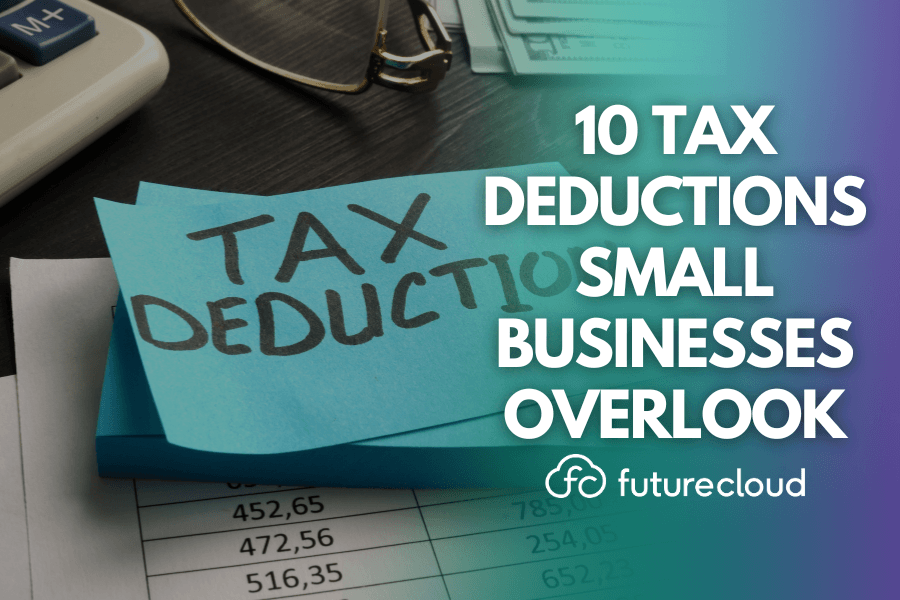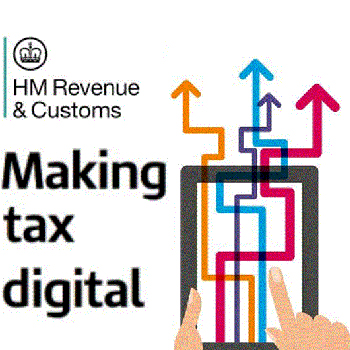When tax season rolls around, most small business owners focus on the obvious expenses like rent, staff wages, and maybe even software subscriptions. But what if you’re missing out on less obvious deductions that could reduce your tax bill?
At Future Cloud, we want to share these hidden tax-saving opportunities for small businesses. Here are ten unique and often-forgotten business expenses that may be tax-deductible and could make a real difference to your bottom line.
1. Pre-trading expenses
Did you know you can claim for costs incurred before your business officially started trading?
If you paid for things like market research, website design, initial stock, or travel to early meetings in the months leading up to your launch, these expenses can be deducted as if they were made on your first day of trading. But you need to keep receipts and records, even from before you registered the business.
2. Unpaid invoices (bad debts)
If you’ve invoiced a customer and have chased payment without success, you may be able to write off the debt and claim it as a loss.
This only applies to income you’ve already declared and made reasonable attempts to recover, but it’s an often-overlooked relief that could help balance your books, especially if late payments are common in your sector.
3. Uniforms and branded clothing
If you or your staff wear uniforms with your company branding, those costs are tax-deductible. This includes branded t-shirts, jackets, and other clothing used solely for business.
Just remember, everyday clothes (even if you only wear them for work) don’t count. But if your logo is printed on it, it’s a valid expense.
4. Credit card processing fees
If you accept card payments from customers using providers like Stripe, PayPal, Square, or SumUp, you’re likely paying processing fees on every transaction. These charges are deductible as business expenses.
It may seem small, but over a year, this adds up, especially for businesses with high transaction volumes.
5. Website maintenance & hosting
You might have claimed for website design, but what about ongoing hosting, maintenance, plug-in renewals, and domain name fees?
These recurring costs often go unnoticed, but they’re fully allowable if the website is used for business (e.g., promoting services, selling products, or collecting leads).
6. Petty cash purchases
Buying milk for the office tea? Picking up pens during a coffee run? These tiny purchases often fall into the “too small to bother” category, but if you keep records, they add up over the year.
Keeping a proper petty cash log or digital receipt system can help you claim all those little everyday essentials.
7. Spotify, Apple Music or other licensed music services (for business use)
If you play music in your shop, salon, or office, and use a licensed service for commercial use, you may be able to claim the subscription as an expense. Just ensure you’re also complying with PRS/PPL licensing rules.
It’s not just about ambience, it’s part of the customer experience, and it counts.
8. Business gifts (within limits)
Giving a client a small thank-you gift? You may be able to deduct the cost, provided it meets HMRC’s criteria.
The gift must be promotional (i.e., it has your business name or logo on it), cost £50 or less per person per year, and not be food, drink, or tobacco. Branded mugs, pens, or calendars? Perfectly fine.
9. Use of personal assets (like your own camera or tools)
Freelancers, creatives, and tradespeople often use personal equipment, like a DSLR camera, laptop, or power tools, for both personal and business use.
You may be able to claim a proportion of the cost or depreciation of the asset, based on how much you use it for business. Just make sure you’re applying a reasonable split and keep evidence of usage.
10. Business storage costs
If you’re using a storage unit for excess stock, archived documents, tools, or even seasonal equipment, storage rental is tax-deductible.
This applies whether it’s a self-storage locker, warehouse space, or even part of your home (if designated solely for business use). Make sure it’s clearly documented in your accounts.
Final thoughts
It’s easy to focus on the big-ticket items when managing your business finances, but as this list shows, the smaller or less obvious expenses often go unnoticed, and unclaimed.
The good news? With the right guidance, you can make sure you’re claiming every penny you’re entitled to. So, don’t miss out!
At Future Cloud, we work closely with small business owners across the UK to uncover these hidden deductions and keep your business as tax-efficient as possible. We’re here to help your business grow smarter, whilst saving money where you can.
Get in touch if you want to get involved with this.
Email us at: info@future-cloud.co.uk
And don’t forget to follow us on social media for the latest updates, tips, and more!


